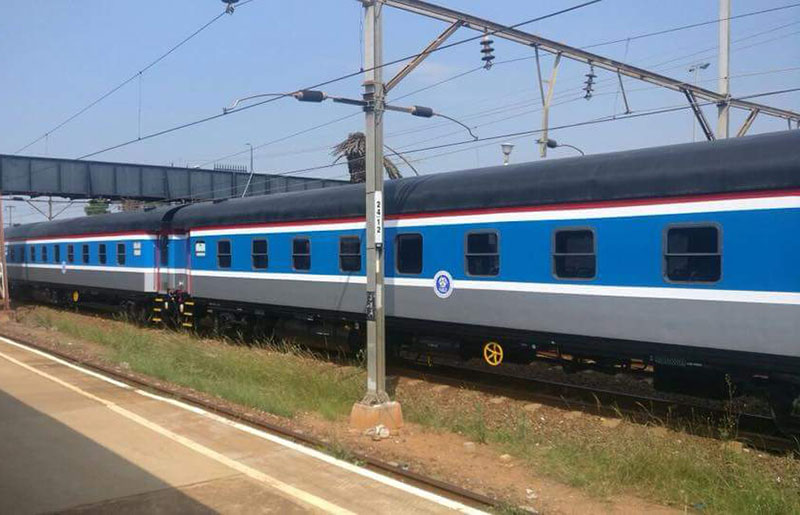NRZ courts private players
THE National Railways of Zimbabwe (NRZ) is set to partner with private players who have their own locomotives and wagons to augment its rolling stock in a bid to enhance the rail operator’s capacity to meet growing demand for its services.
The arrangement would increase the volume of goods being moved by rail in the country and ease congestion on the country’s major roads used to transport most of the freight in the country.
Improved capacity at the rail operator through incorporating the private sector, to be implemented under a model known as Open Access, would address capacity challenges and provide an efficient bulk logistics solution to the Zimbabwean industries.
In a statement, NRZ general manager Ms Respina Zinyanduko said the past few years have seen a boom in the mining sector, spurred mainly by lithium and a massive coal and chrome resurgence and this has seen the parastatal courting the private sector for partnerships while the railway operator’s recapitalisation exercise is being sorted out.
Ms Zinyanduko said management had recommended the idea for private sector partnership to the NRZ board of directors chaired by Advocate Mike Madiro, which then approved it.
“The Open Access initiative will result in the formulation of tripartite arrangements whereby private players with capacity will provide locomotives and wagons to move a proportion of cargo for NRZ customers.
“They will pay access and administration fees to NRZ.
“This arrangement will result in NRZ providing timeous movement of traffic to and from the ports, thus affecting quality service and efficiency to its customers, some of whom have had to resort to road usage,” she said.
Ms Zinyanduko said three companies have already expressed interest in the initiative and will be on board from January next year.
She indicated that this will ease pressure on the roads as well as generate additional revenue for NRZ.
Further to that, the private capacity players will be restricted to using NRZ drivers and will have their locomotives and wagons serviced at the entity’s workshops, thereby creating more jobs.
“This arrangement will allow NRZ to pursue its recapitalisation initiatives while at the same time providing the much-needed reliable service to its esteemed customers,” Ms Zinyanduko said.
The NRZ is on a recovery path following years of nose-diving in operations.
Last year, the State-owned entity moved 2,416 million tonnes of cargo reflecting a performance rate of 80 percent against the targeted three million tonnes of freight.
In 2021, NRZ’s performance rate stood at 77 percent moving 2,309 million tonnes against a projection of 3 million tonnes.
At its peak in the 1990s, NRZ moved over 14 million tonnes per annum against a capacity of 18 million tonnes.
The parastatal’s freight volumes have over the years dwindled due to a host of challenges and in the past, the company has failed to pay salaries and other creditors, both local and foreign.
This development will therefore see the company improving its operations and achieving stabilisation and growth in terms of its strategic plan document which has three stages.
Meanwhile, NRZ has cleared its pension fund arrears that had ballooned to over $5 billion cumulatively, marking a crucial milestone as the State-owned entity was moving to address long-standing legacy debts including those owed to statutory boards.
The parastatal has also reduced its debt owed to CFM of Mozambique to US$3,2 million from a cumulative total of US$6 million, a move that has seen the entity normalising relations with the State-owned rail firm.
CFM oversees the railway system of Mozambique and its connected ports.
As a result of the US$6 million debt overhang, CFM had threatened to ban NRZ trains into Mozambique.
Had NRZ been banned from entering into that neighbouring country, trade between Zimbabwe and other countries whose goods are shipped through Mozambique by rail could have been compromised.herald











